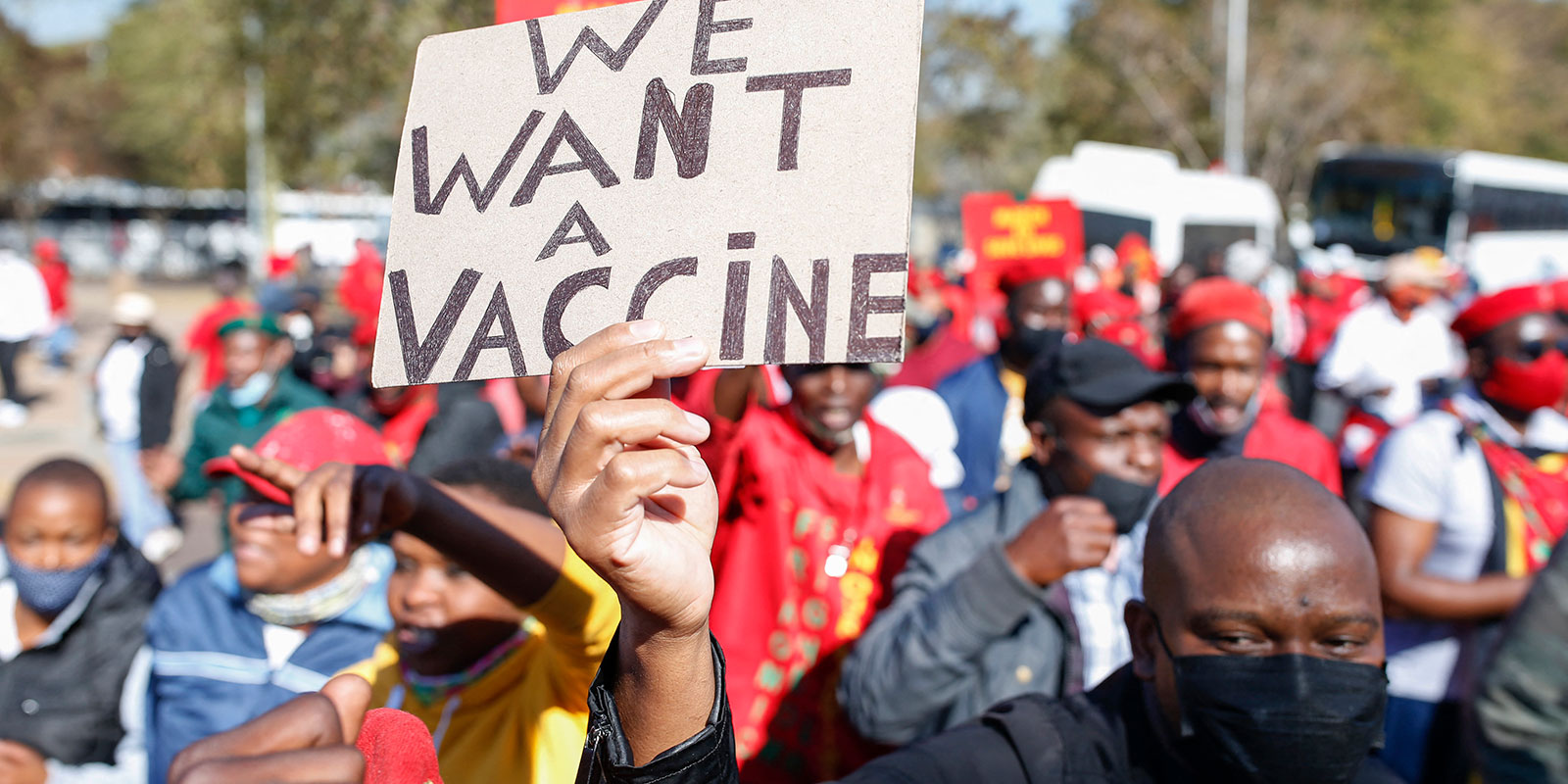In December 2020, the United Kingdom became the first country to administer the COVID-19 vaccine that brought hope and some relief in alleviating the spread of the virus. During the months of December 2020 and January 2021 approximately 39 other countries commenced with vaccination drives, with Mauritius being the only African country to join its international counterparts. According to the World Health Organisation (WHO), by May 2021 49 African countries had rolled out COVID-19 vaccines and over 22 million doses on the continent. However, the WHO indicated that twenty-three African countries have used less than half of the doses they have received so far with only seven countries that have used 100% of its doses and another seven that have used 80% of doses received. Thus, the concerns about health systems, availability of vaccines and slow vaccine drives continue to dominate as the third wave sweeps through African countries.
Some governments have returned to lockdown measures. On 6 June 2021, Ugandan President Yoweri Museveni announced a strict lockdown, that involved the closure of all schools and institutions of higher learning for 42 days; the suspension of communal prayers in churches and mosques, and public transport such as buses, taxis and motorcycle services between and across districts for 42 days. This comes at a time when the country’s cases are rising rapidly and there are concerns about the availability of oxygen. In the Democratic Republic of the Congo, President Felix Tshisekedi cautioned people on the third wave and limited gatherings to 20 people as well as shut down nightclubs.
With the prospect of more vaccines on the horizon, the lockdown measures have become a Plan B, which, while necessary, are no longer feasible, as African countries need to develop further and grow their economies.
Tweet
The Tanzanian government also warned its citizens of the third wave of the coronavirus and announced that all precautions should be taken, including the wearing of face masks. While the government has not instituted a lockdown, opposition groups have called on the government to control movement in the country, particularly at the border of Uganda; as well as have a clear strategy on preventative measures. Tanzania had initially stopped reporting on the virus, during the administration of President John Magufuli. However, following his death in March 2021 and with Samia Hassan presiding over the country shortly thereafter, there has been a change in the handling of the pandemic.
South Africa, which has been the most affected African country with the highest infection rate, also increased its lockdown measures when, on 15 June 2021, President Cyril Ramaphosa moved the country to level three that involved a curfew, limitations on gatherings and the continued mandatory wearing of masks in public spaces. The lockdowns have been met with criticism in this current wave, especially its implications for livelihoods. In Uganda, for instance, when the lockdowns were first instituted, food drives took place so that people could cope whilst not being able to work, however, there are no relief efforts during the current 42-day lockdown. In South Africa, members of the Economic Freedom Fighters (EFF), were instructed by its leader, Julius Malema, to defy lockdown regulations until more coronavirus vaccines were procured.
The South African government was also criticized for its slow process in administering the vaccine. The country projected to vaccinate five million people against COVID-19 over the age of 60 by the end of June. However, its latest dashboard on 19 June 2021 indicated that only 2.1 million people have been vaccinated, less than half of its projected amount. Amidst this criticism, the Health Ministry has had to deal with several other challenging situations. On 08 June 2021 the Minister of Health was put on special leave due to allegations of corruption, and was replaced by an acting health minister. Since mid-June the spread of the virus significantly increased, and by 19 June, the country saw its highest daily infections at 13 246, the highest in five months. In addition, hospital admissions have increased by almost 60 percent in the last two weeks. With hospitals in the Gauteng province taking severe strain, the acting Minister of Health requested the deployment of the South African National Defence Force (SANDF) to Gauteng to provide support to the health sector and with vaccinations, in order for hospitals to cope.
Some delays in the vaccination process can also be linked to the contamination of chemicals from the United States of America (USA) that affected the production of vaccines in South Africa. As South Africa is the only country on the continent currently being relied upon to supply vaccines to the rest of Africa, this caused some setbacks on the rollout of the vaccination process as two million Johnson and Johnson vaccines had to be destroyed as a result of the contamination. The WHO’s announcement on 21 June 2021, that a ‘tech transfer hub’, is to be established in South Africa, would enable other African companies to begin manufacturing mRNA vaccines, which is “the advanced technology now used in shots from Pfizer-BioNTech and Moderna”. This offers some hope and will alleviate some of the pressure on South Africa in the manufacturing and accessibility of vaccines to the rest of the continent.
With the prospect of more vaccines on the horizon, the lockdown measures have become a Plan B, which, while necessary, are no longer feasible, as African countries need to recover from the socioeconomic impacts of the pandemic by securing people’s livelihoods and then, securing the economy. The new technology and training will also bridge the gap a little more to improve health systems in Africa.
Marisha Ramdeen is a Senior Programme Officer at ACCORD.


